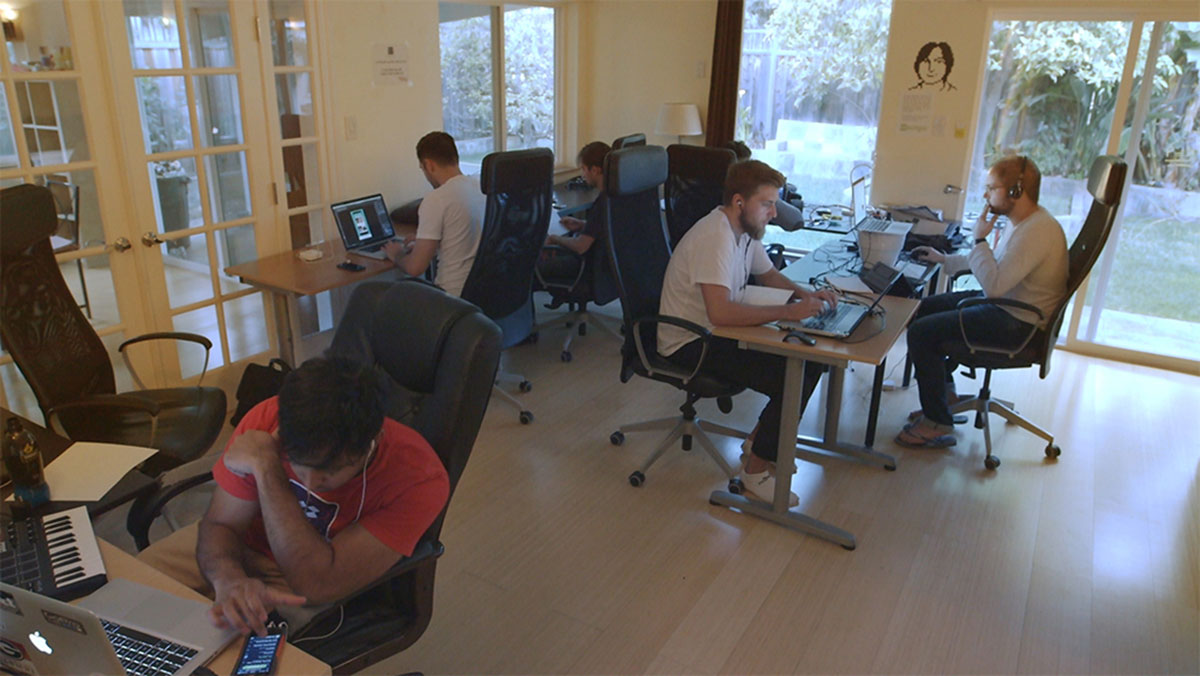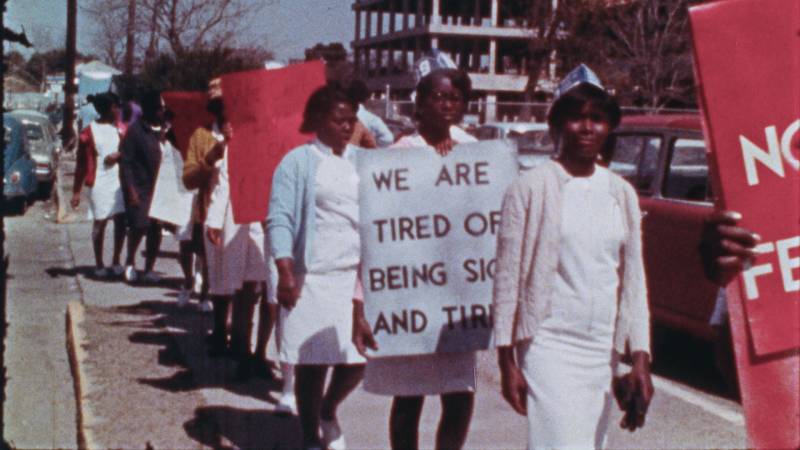Each of the works in progress is a winner, as a jury of industry professionals will award three big grants and five smaller prizes. Here’s where you enter the picture: A $25,000 Audience Award is up for grabs, with online voting open through Aug. 19.
The projects include My Name is Andrea, Pratibha Parmar’s portrait of public intellectual Andrea Dworkin, and Startup Embassy, Kenji Yamamoto’s saga of three hungry Silicon Valley entrepreneurs. Khadija Diakité’s Black and Gold depicts another not-for-the-meek competition, that of elite Black women gymnasts vying for spots on the Olympic team.
Jazz On a Summer’s Day
Streaming via local theaters
I begin the countdown of new releases with a golden oldie. Top-rank commercial photographer and Kubrick pal Bert Stern made just one feature-length film in his colorful life, but it’s an indisputable classic. A record of the last two days of the 1958 Newport Jazz Festival, Jazz On a Summer’s Day invented the concert film as we know it with its blend of electric performances, tight close-ups and candid audience reactions.
Important enough to be included in the National Film Registry of the Library of Congress (as is I Am Somebody), Jazz On a Summer’s Day flits and darts like a feather on a breeze. The music isn’t the only thing lifting our spirits; Stern’s compositions of carefree integration play like postcards from an ideal society. Last word: If you’ve never heard of Anita O’Day, you’ll never forget her after Jazz On a Summer’s Day.
Boys State
Apple TV+
Local filmmakers Jesse Moss and Amanda McBaine wowed Sundance audiences and won the Grand Jury Prize for their vivid rendering of Texas’ annual spectacle of youthful political participation. Separating a thousand high school seniors into two parties, Boys State immerses them in a week-long distillery of the best and worst aspects of electoral democracy. (Girls State also takes place, and while it probably devolves into a similarly frothy brew of speechifying, strategizing, team-building, generalized apathy and naked ambition, one hopes the gals are more sophisticated.)
Boys State gleans order and suspense from the chaos by using the Spellbound model: Focus on a handful of subjects, follow them through the competition (the ultimate prize is Governor of Boys State) and conduct candid interviews with them as the week unfolds. Needless to say, Moss and McBaine expertly shape the film to make it almost impossible not to root either for or against the spotlighted guys.
Consequently, the film works like a Pavlov chime in revving your sympathies and, during the climactic vote, heartbeat. Boys State is engaging entertainment, but if you aren’t all that keen about being manipulated like a spaniel, and yearn for more insight into political systems or Lone Star psyches, set your expectations accordingly.
The Cordillera of Dreams
BAMPFA through Aug. 16
Patricio Guzmán fled Chile after the Pinochet coup, finishing his landmark mid-’70s documentary The Battle of Chile abroad. He’s returned to visit but never to live, yet the brutal history of his homeland informs every frame of his films. If you missed The Cordillera of Dreams when the Roxie showed it a few months ago, you have a couple days to watch it along with his other brilliant recent essay films, Nostalgia for the Light (2010) and The Pearl Button (2015).
Guzmán has the ability to evoke the ephemeral—memory, most crucially—through the physical and the tangible. The Cordillera of Dreams takes the long range of the Andes Mountains on Chile’s eastern side and patiently and relentlessly probes its geographical, material and metaphorical dimensions.
This great filmmaker’s lifelong project might be described as “never forget,” to borrow a phrase, but that’s underestimating the scope of his mission. He knows that those who suffered under the military regime, whose parents and siblings and friends were tortured and murdered, are condemned never to forget. They do not need help remembering.



